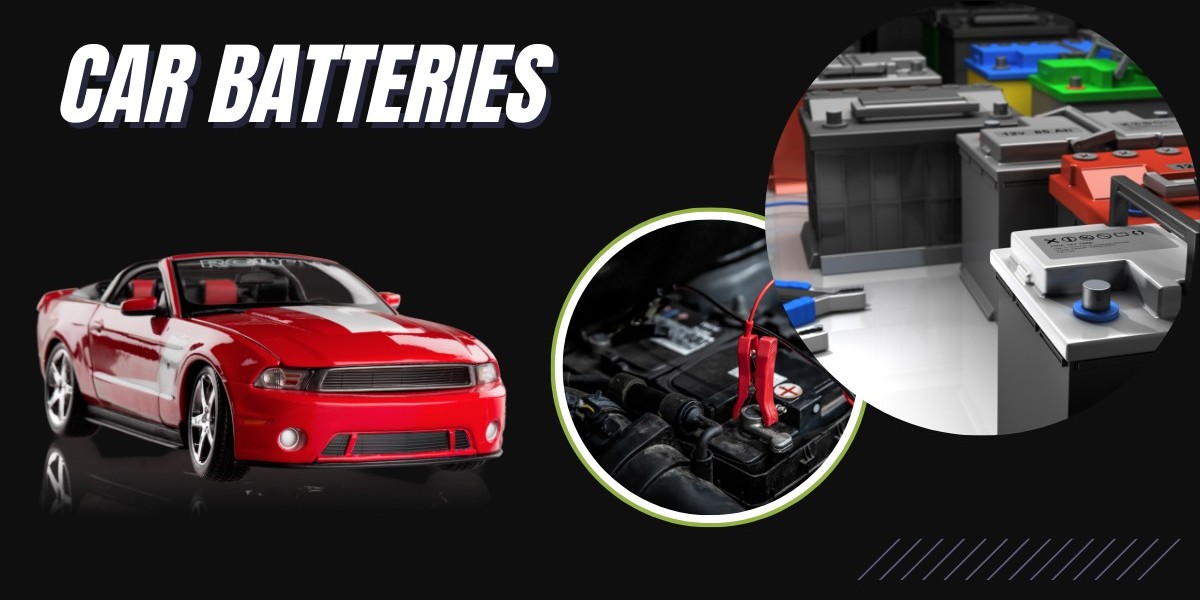Car batteries play a pivotal role in powering your vehicle. From starting the engine to supporting electrical components, a reliable battery ensures smooth driving experiences. Without proper knowledge, choosing the right battery can be challenging. Here’s an insightful guide that unpacks everything you need to know about car batteries, helping you make smarter, more informed decisions.
What Are Car Batteries and Why Are They Important?
At their core, car batteries supply the electrical energy needed to start your car. They store and release energy through chemical reactions, powering everything from the ignition system to lights and air conditioning.
Fun fact: Around 68 million car batteries are sold annually in the U.S. alone, emphasizing their necessity in vehicle maintenance.
A failing battery can lead to inconveniences like stalled engines or dimming headlights. Hence, understanding what makes a good battery and how to maintain it is critical for every car owner.
Types of Car Batteries
Choosing the right battery type is essential. Here are the most common kinds of car batteries:
Lead-Acid Batteries:
- Cost-effective and widely available.
- Ideal for conventional vehicles.
- Require regular maintenance.
AGM (Absorbent Glass Mat) Batteries:
- Provide better performance and durability.
- Spill-proof and maintenance-free.
- Suitable for vehicles with advanced tech like start-stop systems.
Lithium-Ion Batteries:
- Lightweight and long-lasting.
- Primarily used in hybrid or electric vehicles.
- Higher cost but eco-friendly.
Each type has its pros and cons, so selecting based on your vehicle's needs is vital.
How Long Do Car Batteries Last?
On average, car batteries last 3-5 years, depending on usage and climate conditions. Heat accelerates internal corrosion, reducing lifespan, while freezing temperatures can deplete charge levels.
Pro tip: Perform regular voltage checks and visual inspections to maximize battery life.
Signs Your Car Battery Needs Replacement
Early detection of a failing battery can save you from sudden breakdowns. Watch out for:
- Slow engine crank.
- Dim headlights or flickering dashboard lights.
- Unusual odors (a rotten egg smell often indicates leaking gas).
- Corrosion on terminals.
- Frequent need for jumpstarts.
If you experience any of these, it’s time to inspect your car battery or consult a professional.
Factors to Consider When Buying a Car Battery
When purchasing a new battery, take these factors into account:
- Size and Fit: Ensure compatibility with your vehicle's make and model.
- Cold Cranking Amps (CCA): Essential for starting engines in cold weather.
- Reserve Capacity: Measures how long the battery can power essential systems if the alternator fails.
- Warranty: Look for options with extended coverage for added peace of mind.
- Brand Reliability: Trusted brands often deliver consistent quality.
“Quality batteries are an investment, not an expense,” notes Jason Hall, an automotive expert.
Top Brands of Car Batteries
Here are some of the most trusted car battery brands known for their performance and longevity:
- Optima Batteries: Renowned for durability and unique spiral cell design.
- Exide Technologies: Offers affordable and reliable options.
- DieHard: Known for excellent warranties and all-weather resilience.
- ACDelco: Preferred by many for their consistent quality.
- Odyssey: High-performance batteries for demanding vehicles.
Researching and comparing these brands can help you pick the right fit for your car.
Tips to Maintain Your Car Battery
Proper maintenance prolongs your battery's life. Follow these simple steps:
- Keep terminals clean and free of corrosion.
- Avoid short trips that don’t allow the battery to recharge fully.
- Turn off lights and electrical components when the engine is off.
- Park in shaded areas to reduce heat exposure.
- Test your battery’s charge periodically.
By following these practices, you can ensure optimal battery performance for years to come.
Are Used Car Batteries a Good Option?
While used car batteries might save money initially, they often come with reduced lifespan and performance. Always weigh the cost savings against reliability risks before purchasing a second-hand battery.
Battery Recycling: An Eco-Friendly Move
Did you know that nearly 99% of lead-acid car batteries are recyclable? Recycling prevents hazardous chemicals from harming the environment. Many auto shops and recycling centers accept used batteries, making it easy to dispose of them responsibly.
Comparing Traditional vs. Modern Car Batteries
| Feature | Traditional Batteries | Modern AGM Batteries |
|---|---|---|
| Maintenance | Frequent | Minimal |
| Cost | Low | High |
| Performance | Moderate | Excellent |
| Durability | Shorter lifespan | Longer lifespan |
Modern AGM batteries are an excellent choice if you value convenience and longevity, though they come at a higher price.
FAQs
What is the best way to test a car battery?
Using a multimeter, check the voltage; a reading of 12.6 volts or higher indicates a fully charged battery.
How often should I replace my car battery?
Typically every 3-5 years, but it depends on usage and environmental conditions.
Can I install a car battery myself?
Yes, but ensure proper safety measures like wearing gloves and disconnecting the negative terminal first.
Do colder climates affect car batteries?
Yes, cold weather reduces battery efficiency and can make starting the engine harder.
What’s the cost of replacing a car battery?
Depending on the type, costs range from $50 to $200. Premium batteries can cost more.
Is it safe to jumpstart a car with a dead battery?
Yes, but ensure both vehicles are turned off and connected correctly to avoid electrical damage.
Conclusion
Car batteries are a vital component of your vehicle's functionality. Whether you’re buying a new one, maintaining an existing one, or seeking replacement options, understanding the essentials ensures a reliable and hassle-free driving experience. Choose wisely, maintain regularly, and recycle responsibly to get the most out of your battery while protecting the environment.



